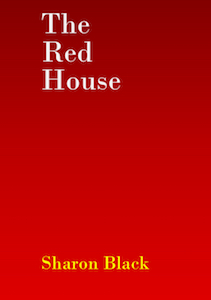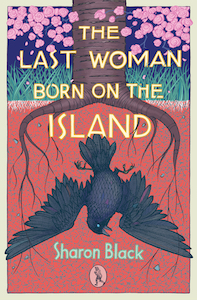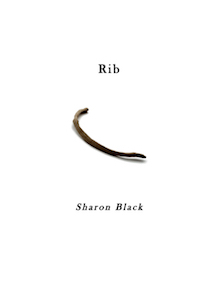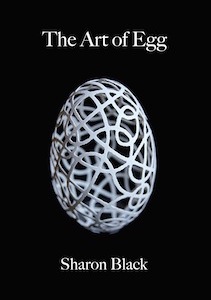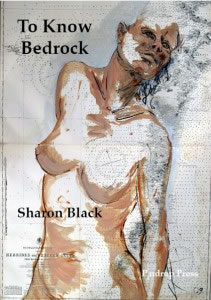My latest poetry collections are The Last Woman Born on the Island (Vagabond Voices, Sep. 2022) and The Red House (Drunk Muse Press, Sep. 2022).
Previous collections are: To Know Bedrock (Pindrop Press, 2011), The Art Of Egg (Two Ravens Press, 2015; Pindrop Press, 2019) and a pamphlet, Rib (Wayleave Press, 2021).
My fifth full collection is due to appear in Spring 2026 with Vagabond Voices.
Individual poems have appeared in 14, Acumen, Aesthetica Creative Works Annuals, Agenda, Ambit, Caduceus, Clarion, Coast to Coast to Coast, Dark Mountain, Dreich, Earthlines, Envoi, Eye Flash, Fenland Poetry Journal, Finished Creatures, Gutter, Here Comes Everyone, Interpret, Iota, L'Imprévu (France), Magma, Mslexia, New Writing Scotland, Northwords Now, Orbis, Poetry Ireland Review, Poetry News, Poetry Salzburg Review, Poetry Scotland, Poetry Wales, Popshot, Prole, Stand, Strix, The Bastille, The French Literary Review, The Frogmore Papers, The Interpreter's House, The London Magazine, The Moth, The New Quarterly (Canada), The New Writer, The North, The Poets’ Republic, The Pomegranate, The Rialto, The Spectator, The Storms, Under the Radar, and Vallum (Canada).
Also Morphrog, The Friday Poem, Creatives (Scottish Mountaineering Press), Fevers of the Mind, Green Ink Poetry, MODRON (all online), and several print anthologies including After Sylvia (Nine Arches Press), Emma Press anthologies of Age, Animals, Travel, and Future; Glimmer, Storm at Galesburg, The Visitors, Feeding the Cat, A Roof of Red Tiles (all Cinnamon Press), Pale Fire – New Writings on the Moon (The Frogmore Press), All the Way Home (Leaf Books), Up to Our Necks in It (Black Tulip Books), Book of Sand, A Complicated Way of Being Ignored (Grist), Entanglements (Two Ravens Press), Alice: Ekphrasis at the British Library (Joy Lane Publishing), the Mslexia Writer's Diary 2016, My Time (Voluntary Arts Scotland), Poems in the Waiting Room, Living with Other People (Corrupted Poetry) and What Winter Wants (Rymour Books).
Forthcoming work (as of November 2025) will appear in Stand, Magma, Under the Radar, Poetry London, SNACK, Paperboats and The Pomegranate.
(Drunk Muse Press, 2022) |
(Vagabond Voices, 2022) |
(Wayleave Press, 2021) |
(Two Ravens Press, 2015) (re-published Pindrop Press, 2019)
|
(Pindrop Press, 2011) |
The Last Woman Born on the Island is an exploration of the past and the present, and a celebration of the landscapes, both physical and emotional, that make up our lives. The title poem is set on an unnamed Hebridean island which could be St Kilda, could be fictitious, or could be a symbol for what we have lost and yearn to rediscover. Much of the collection is set in my homeland of Scotland. Some poems contemplate the history and traditions of the Highlands and Islands – from the HMS Iolaire disaster off Lewis in 1919, to the knitting of Eriskay ganseys, the legend of The White Cow at Callanish stone circle, and the work of herring girls at the start of the 20th century. Others consider Scottish dialect, and the country’s wildest and most beautiful landscapes. Is there is a difference between something lost, and something merely forgotten? Who is the last woman and where is the island? Available from Vagabond Voices.
The Red House ('La Maison Rouge') was the last silk spinning mill in France, an industry which reached its peak here in 1853 and ended in 1965 when this mill in the Cévennes mountains closed its doors for the final time. It is now a museum about Cévenol life. Using museum objects as starting points, the poems in this volume explore the history and culture of this sparsely populated part of France, a region which RL Stevenson crossed in 1878, often comparing it with rocky, heather-filled areas of Scotland, and recounting his journey in Travels with a Donkey in the Cevennes. I have lived in a remote valley of the Cévennes since 2001 and weave my own experiences as an incomer through this narrative, as well as the lives of my neighbours and people who live there today – goat herders, smallholders, odd jobbers, restaurateurs, hunters, foresters: taciturn yet with a deep sense of community and communion with the land. The Red House draws out their stories, and with them, our own relationships with time and place. Available from Drunk Muse Press.
Reviews of The Last Woman Born on the Island
Westender
reviewed by
Brian Toal
The Frogmore Papers
reviewed by Charlotte Gann
Reviews of The Red House
The Friday Poem
reviewed by Hilary Menos
The Frogmore Papers
reviewed by Clare Best
Northwords Now
reviewed by Mandy Haggith
Orbis
reviewed by Jennifer McGowan
The High Window
reviewed by Alex Josephy
Reviews of Rib
London Grip
reviewed by Rennie Halstead
Sphinx
reviewed by Anne Bailey
Sabotage Reviews
reviewed by Afric McGlinchey
The Friday Poem
reviewed by Richie McCaffery
Northwords Now
reviewed by Anne MacLeod
The Frogmore Papers:
"characteristically lyrical, fluent and often quietly subversive"
reviewed by Robin Houghton
Orbis: "sharp and sensual"
reviewed by Theresa Sowerby
Reviews of The Art of Egg
Diary of a Soul Writer
reviewed by Hailie Andersen
The Interpreter's House: "The art is of turning everything into a 'yes' moment. And Black has that art."
reviewed by Dawn Gorman
Envoi: "full of dense, exhuberant colour, rooted in the everyday world. An exciting read."
reviewed by Wendy Holborow
The Frogmore Papers: "the poems take flight gracefully, taut and delicious"
reviewed by Janet Sutherland
Reviews of To Know Bedrock
The North: "Her poems exude a physicality which is precise and evocative at once."
reviewed by Wendy Klein
Under the Radar: "Black's curiosity about what makes people tick [...] comes clearly through in each poem"
reviewed by Michael W Thomas
Orbis: "Here, the female body is unshakeable bedrock. I wish there were more space to limn [...] the excellence of this brilliant collection."
reviewed by Jennifer A McGowan
The Frogmore Papers: "Sharon Black's debut collection is beautifully assured."
reviewed by Janet Sutherland
Envoi: "Full of lyrical rhythm and compelling imagery, this is a quietly assertive poetry"
reviewed by Jan Fortune
Jayne Stanton POETRY
reviewed by Jayne Stanton
